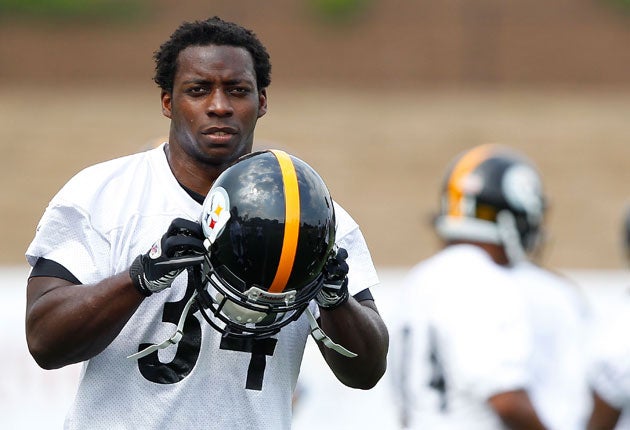Your support helps us to tell the story
From reproductive rights to climate change to Big Tech, The Independent is on the ground when the story is developing. Whether it's investigating the financials of Elon Musk's pro-Trump PAC or producing our latest documentary, 'The A Word', which shines a light on the American women fighting for reproductive rights, we know how important it is to parse out the facts from the messaging.
At such a critical moment in US history, we need reporters on the ground. Your donation allows us to keep sending journalists to speak to both sides of the story.
The Independent is trusted by Americans across the entire political spectrum. And unlike many other quality news outlets, we choose not to lock Americans out of our reporting and analysis with paywalls. We believe quality journalism should be available to everyone, paid for by those who can afford it.
Your support makes all the difference.To tweet or not to tweet? That is the question facing America's professional sportsmen until a court in North Carolina passes judgment in a landmark case that may establish whether corporate sponsors are entitled to dictate what political opinions an athlete can express via social networks.
At the centre of the dispute is Rashard Mendenhall, a running back for the Pittsburgh Steelers NFL team. Mendenhall sued Champion, a multinational sportswear company, after it abruptly cancelled an endorsement deal with him almost three months ago. The firm dropped him days after he had used Twitter to express controversial – and largely left-wing – views on Osama bin Laden, race relations and 9/11. He claims that violated a deal they'd signed a year earlier, and is seeking $1m (£610,000) in damages from Champion's parent company, Hansenbrands.
Though the case may, on the face of it, be a simple matter of contract law, Mendenhall is arguing that his right to express a political view has been violated. The athlete, who has almost 55,000 followers on Twitter, is fond of using the microblogging site to explore provocative topics.
Earlier this year, when the NFL – which is run by a cabal of largely right-wing club owners – was involved in a pay dispute with players, he declared: "Anyone with [knowledge] of the slave trade and the NFL could say that these two parallel each other."
And, last week, he linked to an image of a "black Monopoly" board in which every space carried the "go to jail" icon. "If you study the incarceration rates of the US vs other nations, and look at the demographics of race/people imprisoned, [it] makes sense," he commented.
But it was Mendenhall's tweets after the death of Bin Laden that prompted Champion to drop him. As television broadcasts showed crowds of Americans celebrating the terrorist's assassination, he tweeted: "What kind of person celebrates death? It's amazing how people can HATE a man they have never even heard speak. We've only heard one side." He also appeared to express sympathy for the "truther" movement of left-leaning 9/11 conspiracy theorists.
Mendenhall's contract with Champion barred him from actions that would bring him "into public disrepute, contempt, scandal or ridicule, or tending to shock, insult, or offend... the consuming public," according to the company's lawyer, Lynette Fuller-Andrews. How much that limits his right to tweet about terrorism, race relations or 9/11 is now a matter for the courts. However, legal experts believe he faces an uphill struggle.

Join our commenting forum
Join thought-provoking conversations, follow other Independent readers and see their replies
Comments